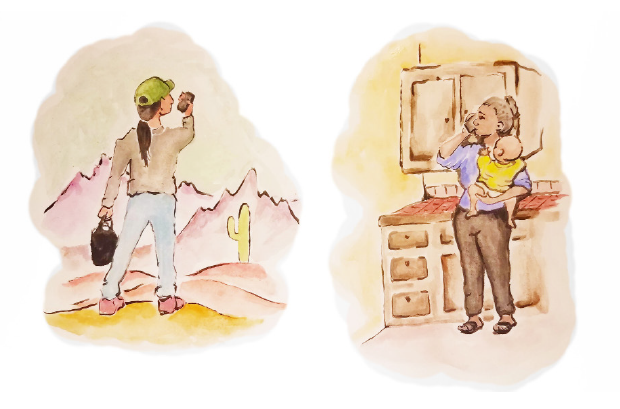Families often receive urgent calls from loved ones who are lost and in distress in the U.S.-Mexico borderlands, or from an eyewitness who was with them in the desert.
These calls can contain crucial details regarding the person’s location and medical condition.
Faced with an inadequate and discriminatory emergency response system controlled by Border Patrol, family members take on the monumental work of acting as emergency first responders.
Here’s a partial list of actions family members have taken to locate their missing loved ones...
1. Repeatedly calling police, Border Patrol, ICE offices, hospitals, detention centers, morgues, immigration attorneys, non-profits, and news outlets.
2. Taking out missing persons ads, putting up posters, searching and posting on the Internet, in hopes of hearing word of their loved ones whereabouts.
3. Hiring private detectives and private helicopter companies to search for their loved ones in deserts and detention centers.
4. Traveling to the border area where their missing loved one disappeared to search in person, or to meet with authorities and humanitarian groups to advocate for a search.
Family members have even made the dangerous border crossing themselves to search for lost loved ones.
Family members may also be undocumented and thus assume serious personal risk in reaching out to immigration enforcement or traveling to militarized border regions.
Families not only take on the burden of searching; their efforts face active obstruction from Border Patrol.
We found that Border Patrol obstructed family and humanitarian search efforts in at least 25% of cases.
We document numerous forms of obstruction and interference. These include…
1. Refusing to share important information.
2. Providing false and misleading information to families.
3. Directing families & advocates to non-working numbers and full voicemail boxes.
4. Denying access and refusing humanitarian parole to eyewitnesses in immigration detention.
5. Criminalizing and harassing families and humanitarian search teams, and numerous other forms of obstruction and non-cooperation.
This pattern of Border Patrol interference directly undermines urgent efforts to save lives when government actors refuse to mobilize, further fueling the crisis of death and disappearance in the borderlands.
For details, read the full report at
https://t.co/JGdys8OMus.
This summer, No More Deaths is launching a search + rescue volunteer program. For more information and to apply, visit:
https://t.co/i8u9O011qT












